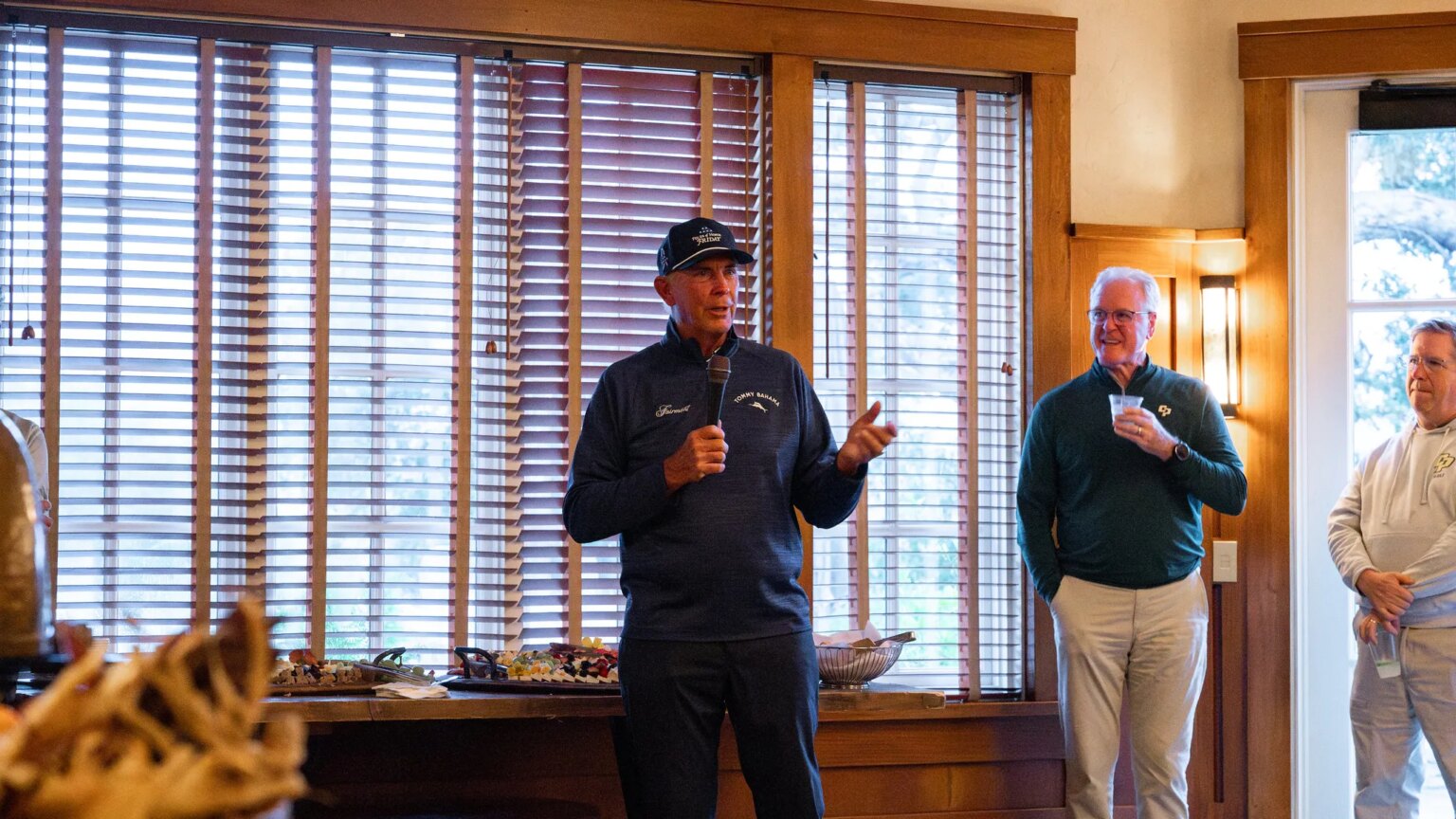The Inspiring Journey of Tom Lehman: From Struggles to Success on the Golf Course
In the world of professional golf, stories of triumph often come layered with challenges. Tom Lehman, a name that resonates with determination and skill, exemplifies this notion perfectly. Arriving in Wichita, Kansas, in August of 1990, Lehman found himself in a precarious position. With his wife and a 6-month-old baby in tow, they were nearly broke, living out of their car—a poignant reminder of the sacrifices many athletes face in pursuit of their dreams.
Lehman’s professional path had been anything but smooth. After graduating from the University of Minnesota, he experienced a brief yet impactful period on the PGA Tour from 1983 to 1985. Following this stint, he spent the next five years battling through mini tours, striving to reclaim his spot on the big stage of golf. As he prepared to compete in the Wichita Open—a key event on what is now known as the Korn Ferry Tour—he faced the daunting pressure of needing to succeed. Little did he know, this tournament would mark a pivotal moment in his life.
The stakes were high at the Wichita Open, with a winning prize of $20,000—a significant sum at that time. Speaking to a group of college golfers at a pre-tournament dinner, Lehman reflected on how transformative that amount of money was for someone in his situation. However, a major hurdle awaited him: as an alternate player, he didn’t have a caddie when he arrived, leading him to seek assistance at Crestview Country Club.
Upon arriving at the pro shop, Lehman voiced his need for a caddie, only to discover none were available. However, the pro shop staff stepped up to help find a suitable candidate. As a result, Lehman ended up with a unique caddie—an inexperienced high school wrestler who had never even been on a golf course. Despite the unconventional arrangement, Lehman embraced the challenge with a positive mindset, focusing on training his caddie on the essentials of the game.
With focused practice and determination, Lehman emerged victorious from the tournament, finishing at 14-under-par, winning by a stroke. The thrill of that first significant win was transformational, particularly for someone traveling in a dilapidated car while juggling family responsibilities. For Lehman, the excitement was palpable; the victory was a blessing that would forever impact his life.
Yet, the victory also presented Lehman with a moral dilemma regarding how to compensate his inexperienced caddie. The agreed payment for the five days of work was $500, yet standard practice dictated a 10 percent cut of the winnings—amounting to $2,000. In a candid moment filled with humor, Lehman recounted his internal struggles: interpreting the caddie’s performance throughout the week led him to question the conventional wisdom of fair compensation.
Ultimately, Lehman decided to honor the unwritten rules of the game and compensated his caddie generously, writing him a check for $2,500. This decision reflected deeper values of honesty and integrity, highlighting the importance of teamwork, even in the face of what seemed like an impractical decision. “Where in the golf guidebook does it say your caddie has to be good in order for you to pay him what he earned?” Lehman reflected on that experience with a smile, demonstrating his belief that sports are about camaraderie, growth, and paying it forward.
Three months later, an unexpected letter arrived from his caddie, revealing a poignant backstory—the struggles of a young man who had overcome adversity, such as abandonment and substance abuse, to focus on his education and future. This letter hit home for Lehman, reminding him that the impact of his actions extended far beyond his golf game. The money he provided helped this young man take significant steps toward his future.
This experience was pivotal for Lehman; it shaped his worldview profoundly. Over the following years, he transitioned from those challenging times to a celebrated career that included five PGA Tour victories, a win at the 1996 British Open, and leadership as the U.S. Ryder Cup captain in 2006. He also tackled the PGA Tour Champions with great success, accumulating over $35 million in career earnings. Nonetheless, it was that initial win and the memorable caddie that served as a reminder of humility and the importance of giving back.
Today at 66, Lehman is not only an inspiring golfer but also a family-oriented man residing in Scottsdale with his wife and four adult children. He spends time supporting his youngest son, Sean, a senior golfer at Cal Poly, where they recently participated in a “college-am” practice round event together, continuing the legacy of camaraderie that Lehman cherishes.
In his latest engagements with aspiring golfers, such as those over the recent Santa Lucia Preserve Collegiate, Lehman emphasizes the importance of character, integrity, and the positive impact one can have on others. “Through golf, you can really touch people,” he shares, urging participants to be mindful of the influence they wield, whether in sports or in life.
Lehman’s life story remains a hallmark testament of grit and resilience—a narrative that transcends the sport of golf itself. It serves as a guiding light for young athletes striving to make their mark while encouraging them to foster positive relationships and leave impactful legacies. As he continually supports the next generation of golfers, Tom Lehman stands as a living reminder that the journey and the relationships we build along the way contribute to the true essence of victory.
